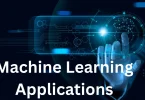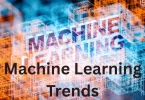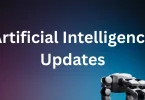In today’s fast-moving tech landscape, one topic consistently sparks curiosity, debate, and even a fair share of concern—artificial intelligence. It’s no longer just a trendy buzzword. Instead, Future of AI has evolved into a powerful and disruptive force that’s reshaping how we live, work, communicate, and even perceive the world around us.
From the virtual assistants helping you organize your schedule to the algorithms that power your favorite music and movie recommendations, AI is already deeply woven into the fabric of our daily existence. But what’s next? How will this ever-advancing technology influence our future? To fully understand what lies ahead, we must dive deep into the future of AI, exploring its roots, current applications, emerging innovations, and the challenges we need to overcome.
The Evolution of Artificial Intelligence
From Rule-Based Systems to Deep Learning
- Early AI systems were basic, relying on explicit rule-based programming to function
- The transition to machine learning introduced adaptability and pattern recognition
- Deep learning further advanced the field, enabling machines to learn from vast datasets
- Innovations like convolutional and recurrent neural networks have revolutionized image processing, voice recognition, and decision-making
Major Milestones in AI Development
- 1956: The term “artificial intelligence” is coined at the Dartmouth Conference
- 1997: IBM’s Deep Blue defeats world chess champion Garry Kasparov
- 2011: IBM Watson outperforms human contestants on Jeopardy!
- 2020s: Generative AI emerges as a mainstream tool for communication, design, and creativity
Current Applications of AI

Everyday Life
- Smart home ecosystems adapt to user habits, improving energy efficiency and comfort
- Smartphones leverage AI for features like facial recognition, voice assistance, and photo enhancement
- Recommendation engines on platforms like Netflix and Spotify personalize entertainment experiences
Healthcare
- AI supports early disease detection using advanced imaging and data analysis
- Predictive analytics assist healthcare providers in managing patient risks
- Robotic surgery increases accuracy while minimizing recovery times
- Virtual health assistants offer round-the-clock medical advice and triage support
Business and Finance
- AI chatbots deliver fast, personalized customer service experiences
- Fraud detection systems analyze millions of transactions in real time
- Algorithmic trading systems forecast market movements with high precision
- AI assists in recruitment, helping companies identify the best-fit candidates faster
Emerging Trends in the Future of AI
Generative AI and Creative Intelligence
- Tools like ChatGPT, Midjourney, and DALL·E are revolutionizing how we write, illustrate, and compose
- Musicians, authors, and designers increasingly collaborate with AI
- Debates around intellectual property and ownership are intensifying
- Businesses are leveraging AI to automate branding, marketing, and content creation
AI in Autonomous Systems
- Self-driving cars are improving with enhanced perception and decision-making
- Delivery drones and security robots are being piloted in urban environments
- Industrial robots are becoming more intelligent, adaptable, and safe
- Agriculture is also benefiting from autonomous machinery for planting and harvesting
Emotional AI and Human Interaction
- Emotion-detecting AI is being used in customer service, education, and entertainment
- Virtual therapists and mental health companions offer emotional support to users
- Emotionally aware robots are being tested in elder care and special education
Ethical Challenges and AI Governance
Data Privacy and Surveillance
- AI systems require extensive data to function effectively, raising major privacy concerns
- Instances of unauthorized surveillance and data breaches are increasing
- Governments and companies are being urged to adopt stricter data protection measures
Algorithmic Bias and Fairness
- AI can unintentionally reinforce societal biases present in training data
- This leads to unfair outcomes in areas like hiring, lending, law enforcement, and healthcare
- Ethical AI development includes using diverse datasets and bias mitigation techniques
Accountability and Transparency
- When AI makes mistakes or causes harm, it’s often unclear who is responsible
- There is growing demand for explainable AI (XAI) that makes decision-making more transparent
- Transparency audits, ethical review boards, and public reporting are being implemented
The Role of AI in Education and Learning
Personalized Learning Experiences
- Adaptive learning platforms adjust content based on each student’s pace and comprehension
- Intelligent tutoring systems provide 24/7 support tailored to learner needs
- AI tracks academic performance and gives insights for improvement
This isn’t just content, it’s a conversation you need to be part
Explore the Latest Artificial Intelligence Updates Now!
Machine Learning Trends: Discover the Future of AI Now
AI Tools 2025: The Future of Innovation Is Here
Tech Events 2025 That Will Blow Your Mind
Curriculum Design and Administration
- AI tools assist educators in designing inclusive, effective curriculum
- Automates grading and administrative workflows, saving time for teachers
- Predictive tools help institutions allocate resources and forecast enrollment trends
AI and the Future of Work
Job Disruption vs. Job Creation
- Automation threatens certain routine-based jobs but creates new roles in AI governance, design, and oversight
- Soft skills and adaptability are becoming critical for future job seekers
- Upskilling and reskilling are essential for long-term career viability
Remote Work and Collaboration
- AI enhances virtual work environments through language translation, smart calendaring, and virtual assistants
- AI-powered project management tools streamline workflows
- Emotion recognition and behavioral analytics tools can support team dynamics
AI in Climate and Environmental Efforts

Environmental Monitoring
- AI analyzes satellite imagery and environmental sensor data to detect changes in ecosystems
- Helps forecast and respond to natural disasters more effectively
- Monitors endangered species and illegal activities such as poaching and deforestation
Sustainable Agriculture
- AI-enabled drones and sensors monitor soil health, weather, and crop status
- Machine learning algorithms optimize resource use, reducing environmental impact
- Predictive analytics help farmers make data-driven decisions for better yields
What Lies Ahead: Long-Term Visions of AI
Artificial General Intelligence (AGI)
- AGI aims to match or surpass human cognitive abilities across a wide range of tasks
- While still theoretical, AGI development could redefine labor, economics, and intelligence
- Raises philosophical and ethical questions about consciousness and autonomy
AI in Space Exploration
- Autonomous rovers and spacecraft equipped with AI are revolutionizing planetary research
- AI is essential for navigation, hazard detection, and scientific analysis on distant planets
- Future interstellar missions may be entirely AI-led
The Fusion of AI with Other Technologies
- Combining AI with quantum computing could unlock speeds and problem-solving capabilities never before seen
- In healthcare, merging AI with genomics and biotechnology allows hyper-personalized treatment
- The integration of AI into IoT networks creates intelligent environments that respond dynamically to human needs
Preparing for the Future of AI
Government and Policy Initiatives
- Nations are drafting AI strategies to balance innovation with ethics and public interest
- International cooperation is vital for setting shared standards and ensuring safe deployment
- Investment in AI research, education, and public awareness is increasing
Individual Responsibility
- Citizens must stay informed about how AI affects their rights and opportunities
- Digital literacy and ethical awareness should be part of general education
- Individuals can advocate for transparency, fairness, and accountability in AI systems
Conclusion
As we navigate this ever-evolving digital era, the future of AI promises extraordinary advancements and transformative changes across every facet of life—economically, socially, and emotionally. By embracing innovation responsibly, addressing ethical concerns head-on, and preparing ourselves through education and awareness, we can ensure that the incredible power of AI is used to uplift humanity and create a better, more inclusive world.
FAQs
How will AI affect jobs in the future?
AI will replace some repetitive jobs but also create new roles in AI development, ethics, and oversight. Adaptability and continuous learning will be key for staying relevant.
Is AI dangerous for humanity?
AI itself isn’t inherently dangerous, but misuse, lack of regulation, or bias in systems can pose serious risks. Responsible development is essential.
Can AI really understand human emotions?
Emotional AI can detect and respond to human expressions and tone, but it doesn’t feel emotions. It mimics understanding based on data patterns.
Will AI become smarter than humans?
Artificial General Intelligence (AGI) could surpass human intelligence, but it’s still theoretical. Experts are debating its timeline and ethical implications.
How can we ensure AI is used ethically?
Ethical AI use requires diverse datasets, transparency in algorithms, strict privacy laws, and collaboration between tech companies, governments, and society.




